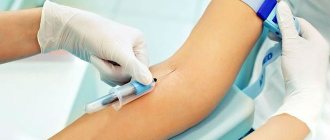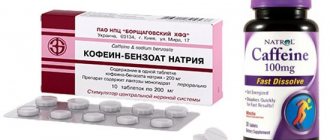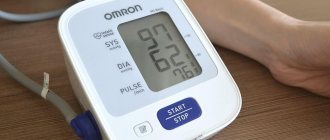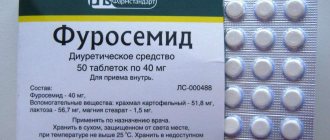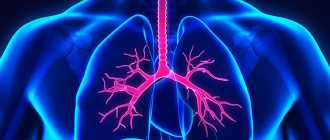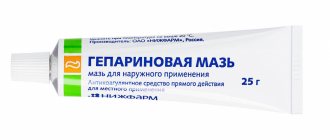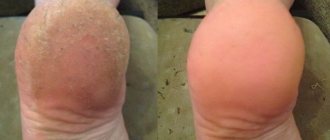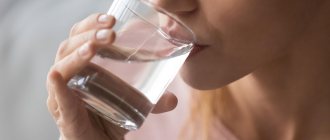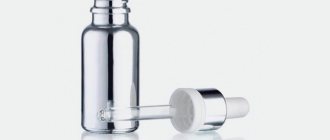Cholesterol is an organic compound found in cell membranes. Necessary for cell construction, synthesis of sex hormones, bile acids, and nutrient metabolism. It plays an important role in the human body, but sometimes causes significant harm.
There are two types of cholesterol in the blood: “good” (HDL) and “bad” (LDL). An increase in the concentration of the latter becomes the main cause of the formation of plaques in blood vessels, resulting in an increased risk of stroke and heart attack. High cholesterol levels are dangerous to health, so they need to be reduced. The most effective methods will be discussed in the article.
What causes cholesterol to rise?
Up to 80% of total cholesterol is synthesized by the human body from fats and only 20% comes to us with food. Moreover, this organic substance is contained exclusively in products of animal origin.
Until recently, it was the abuse of animal fats that was considered the main cause of high cholesterol, but as it turns out, this is not an entirely correct assumption. There are no high or low density lipoproteins in food; they become so during processing in our body. Therefore, metabolic disorders, endocrine diseases, diseases of the liver, intestines and adrenal glands are the main causes of high cholesterol.
At risk of increased LDL and early development of atherosclerosis are:
- patients with diabetes mellitus, obesity;
- people with endocrine diseases, for example, hypothyroidism, deficiency of sex hormones;
- women over 50 years of age, as well as men over 35 years of age;
- people with bad habits;
- patients with diseases of the kidneys, liver, pancreas;
- patients with a hereditary predisposition;
- women who have been taking hormonal medications for a long time.
People at risk should definitely undergo a blood cholesterol test. Because they are susceptible to heart and vascular diseases.
The risk of high blood cholesterol increases with predisposing factors. These include a sedentary lifestyle, bad habits, overeating, an abundance of unhealthy and fatty foods, deficiency of vitamin D, omega-3 polyunsaturated fatty acids in the diet.
High cholesterol in women is more often due to excess weight or low estrogen levels. Typically, this problem occurs during menopause. High cholesterol in men occurs at a younger age, after 35 years. The reason for this is bad habits and poor nutrition.
What drugs lower cholesterol?
Only a doctor can correctly assess the content of this substance and lipoproteins when prescribing laboratory tests. Blood is taken from a peripheral vein to determine the level of low and high density lipoproteins, triglycerides, and cholesterol. The drugs described in the article can only be prescribed by a specialist. The information is provided for informational purposes only.
Statins
The first group is for lowering cholesterol levels. The action of these drugs is aimed at reducing the synthesis of cholesterol in the liver by suppressing the activity of HMG-CoA reductase. With a decrease in cholesterol concentration, the number of receptors for low-density lipoproteins on the surface of liver cells increases, which affects the decrease in the amount of the cholesterol-LDL complex. Statins have a strong evidence base, with many clinical studies showing greater benefits from taking these drugs than the risk of complications with constant use. This group of drugs is the first line in the fight against atherosclerosis. They are also prescribed to prevent unfavorable vascular situations - myocardial infarction, thrombosis, stroke.
Statins are prescribed to prevent vascular pathologies.
Examples of such drugs are:
- Crestor;
- Atoris;
- Livazo;
- Mertenil;
- Liprimar.
Bile acid sequestrants
The mechanism of action is to reduce the absorption of cholesterol in the intestinal lumen. The earliest drugs are cholestyramine and colestipol, resins that bind bile acids to cholesterol in the intestine. These drugs are not absorbed into the systemic circulation and their effect is indirect.
Cholesterol absorption inhibitors
The essence of the interaction of these drugs with cholesterol is to block its absorption in the intestine. However, the drugs do not affect the absorption of other fat-soluble substances.
An example of this group is Ezetrol.
Omega 3 fatty acids
These drugs reduce the concentration of low-density lipoproteins, but the mechanism of their action is poorly understood.
A representative of this group of drugs is Omacor.
A nicotinic acid
This drug is associated with an increase in the level of “good” cholesterol by partially breaking down through an increase in the specific substance apoA1 in liver tissue. The drug has shown its effectiveness in clinical studies (Nicotinic acid tablets).
Normal cholesterol levels
On average, a healthy person contains about 2 g of cholesterol per 1 kg of body weight. If we talk about laboratory standards, then this is 3.6-7.8 mmol/l. However, when deciphering the results, it is important to understand what kind of cholesterol we are talking about. There are the following varieties:
- HDL – high-density lipoproteins, “good” cholesterol, which utilizes excess “bad” cholesterol;
- LDL - low-density lipoproteins, the main carriers of cholesterol in the blood, have a second name - “bad” cholesterol;
- VLDL are very low density lipoproteins that transport endogenous lipids.
A high level of the last two types is a predisposing factor for the development of atherosclerosis.
What cholesterol is considered high? Any (general, “good” or “bad”), if its concentration is above 5 mmol/l. If previously there were no limits for HDL, now scientists have come to the conclusion that its optimal level for men is 1.9 mmol/l, for women – 2.4 mmol/l. It is important that its concentration does not fall below 1.5 mmol/l, as this will cause an increase in LDL cholesterol.
If the level of “bad” cholesterol is within 5-6 mmol/l, then it is moderately elevated. If it reaches 7 mmol/l or more, it is life-threatening.
Studies have confirmed that extremely high cholesterol in men increases the risk of premature death by 106%. For women, this figure will be 68%. But the situation is no better in the case of extremely low HDL levels. An excessive decrease in “good” cholesterol also adversely affects health and increases the likelihood of early mortality.
Folk remedies for lowering cholesterol
To understand how to lower cholesterol, we suggest considering not only commercial drugs. Bringing elevated levels back to normal is often achieved using folk remedies at home.
- Honey mixture. Since you can reduce blood cholesterol with folk recipes, it’s worth considering another one at home. Pass 1 kg through a meat grinder. fresh lemons with zest. Do the same with 2 heads of garlic. Mix all ingredients with 250 ml. liquid honey. To reduce indicators quickly and effectively, you need to eat 20 grams every time before meals. ready-made product.
- Dandelion. Dry dandelion roots or purchase them at the pharmacy. Turn to dust. It should be taken three times a day, 7 grams. before the meal. The first course is carried out continuously for 5-6 months. After this, take the powder occasionally as a preventative measure.
- Garlic tincture. Turn 200 g into porridge. garlic in any available way. Pour in 100 ml. alcohol Let the product stand in a dark room for 10-12 days. Strain and store in an airtight glass container. The tincture should be taken 2-3 drops three times a day.
- Linen. Flaxseed contains various vitamins, amino acids and minerals that help normalize sugar and fat deposits in the circulatory system. Flax can be consumed by adding it to a regular dish, as well as brewing it as infusions and decoctions.
- Sunflower. You need to prepare a decoction from sunflower. Take its roots, seeds and leaves. Dry the raw materials. Mix with 3 l. a glass (250 ml) of boiling water of dry, pre-prepared ingredients. Boil the mixture for 5-7 minutes. After cooling, filter. Use 800-900 ml. daily.
- Rose hip. An alcohol tincture made from rose hips will help fight high cholesterol. To do this, 125 g of pre-crushed fruits are poured with 250 g of vodka or alcohol, left for 14 days and consumed 10-15 g before meals.
- Linden. Another medicinal plant widely used at home. Linden inflorescences help lower cholesterol. A powder is made from them, which is taken three times a day, one teaspoon for a month.
Complications from high cholesterol
High cholesterol is dangerous because it increases the likelihood of developing the following diseases:
- atherosclerosis – accompanied by the formation of atherosclerotic plaques, decreased elasticity of vessel walls, and narrowing of the arteries;
- coronary heart disease – accompanied by narrowing of the coronary artery, which causes myocardial hypoxia and disrupts its functioning;
- hypertension - manifests itself as high blood pressure, against the background of which stroke, heart attack, heart failure and other serious complications are likely;
- stroke - an acute disorder of cerebral circulation as a result of blockage or rupture of a cerebral vessel;
- heart attack – death of a section of the heart muscle due to loss of blood supply.
Most of these diseases are known to be fatal.
High cholesterol at a young age causes early disability and mortality. Due to the increased concentration of LDL, the walls of blood vessels become less elastic, atherosclerotic plaques are deposited on them, which impede blood flow. As a result, blood clots form, which cause heart attack and stroke.
Signs of High Cholesterol:
- heart pain, angina attacks;
- heaviness, pain in the legs even after minor physical exertion;
- the appearance of blood clots with mild bleeding;
- yellow spots on the skin, mainly in the eye area, wen.
More severe symptoms of high cholesterol in men and women appear when LDL levels are at critical levels. This may be a pre-stroke or pre-infarction condition.
The earlier high cholesterol and its causes are identified, the more effective the treatment.
How to treat high cholesterol
To reduce LDL levels, it is important to address the cause of high cholesterol and any predisposing factors. First, you should do a lipid profile. The examination shows how serious the increase is . High cholesterol is treated by a general practitioner or cardiologist. There is also a more specialized specialist - a lipidologist.
To reduce high cholesterol levels in the body, you must adhere to the following recommendations:
- Follow a diet. Namely, reduce the consumption of animal fats, “fast” carbohydrates, and foods with trans fats. Nutritional correction reduces LDL levels by 10-15%.
- To refuse from bad habits. Moreover, not only active smoking, but also passive smoking is detrimental to health.
- To live an active lifestyle. It is useful to walk in the fresh air and set aside time for physical exercise. Exercise for at least 30-60 minutes. in a day.
- Control your weight. Fat deposits in the abdominal area are especially dangerous.
- Control blood sugar levels. This recommendation applies to patients with diabetes, as well as people who are predisposed to this disease.
- Cure endocrine diseases, normalize hormonal levels.
Sometimes statins are needed to treat high cholesterol. They produce an immediate effect, but scientists are increasingly talking about their shortcomings. Drugs in this group do not have a selective effect, they reduce everything - both “bad” and “good” cholesterol, and also negatively affect the functioning of the liver. However, their harm is less than the complications of critically high LDL levels.
What you need to know about cholesterol?
The content of the article
Cholesterol is a lipoprotein. Lipoprotein is a combination of fats and proteins. Most of the cholesterol (80%) is produced in the liver, 20% of it enters the body with food. A person needs no more than 300 mg of cholesterol per day.
Cholesterol performs several important functions:
- responsible for the formation of cell membranes, maintaining their strength and elasticity;
- participates in the production of bile by the liver;
- participates in the synthesis of vitamin D;
- participates in the synthesis of sex hormones;
- protects the nervous system;
- participates in metabolic processes.
Products that need to be limited
I would like to say right away that it is impossible to recover with diet alone. Treatment for high cholesterol is complex. However, some dietary restrictions are simply necessary.
If your LDL level is high, limit your consumption of the following foods:
- meat - beef, veal, lamb, pork;
- bird – duck, goose;
- lard, animal by-products;
- sausages, smoked meats;
- canned food;
- high fat dairy products;
- seafood - caviar, shrimp, oysters;
- margarine, mayonnaise;
- chicken yolk;
- coffee;
- sugar, flour products;
- fast food, convenience foods, chips, crackers and other unhealthy foods;
- salt (it prevents the breakdown of fats).
The consumption of fried foods is also limited, but it is impossible to completely remove all animal fats from the diet. If the body feels a lack of cholesterol coming from outside, it will increase its synthesis. When planning a diet, it is important to consult a nutritionist.
